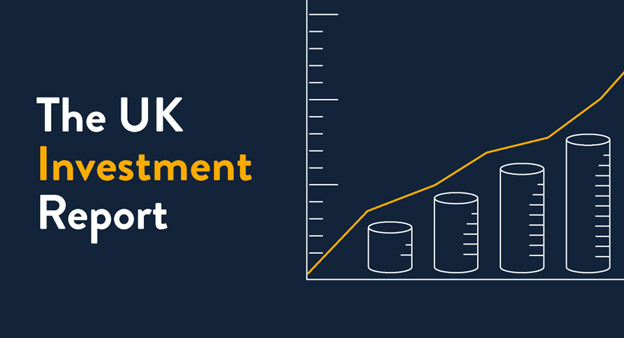
In recent years, investing has become an increasingly popular way for people to grow their personal wealth. However, how many of us are actually taking advantage of this opportunity, and what barriers prevent more people from taking the plunge into the world of investing?
To shed light on these questions, we’ve surveyed 2,000 British consumers on their attitudes around investing. Within this, we’ve also delved into how many people are investing, their habits when doing so, as well as the factors that deter non-investors from taking this leap.
Investment habits and practices in the UK
According to our research, 61% of Brits indicate that they do invest, choosing cash ISAs as their primary investment, whilst 39% chose not to invest at all.
Below, we explore the most popular types of investments in the UK, how different genders and generations are investing, as well as the investment types people in the UK are putting the most amount of money into each month.
What are the most popular types of investment in the UK?
Interestingly, according to our survey, Cash ISAs are the most popular choice for Brits looking to grow their money by investing. 26% of those who took part in the survey said they choose to invest using a Cash ISA. Their lure is understandable: there’s minimal chance of getting back less than you put in, making them low risk. Plus, you can see returns in a shorter period of time, handy for those with short-term money goals.
However, what’s interesting is the fact that individuals are viewing Cash ISAs as an investment. While you can grow your money tax-free like with other investments, a Cash ISA is actually more like a traditional savings account. That means that a lot of people could be missing out on the benefits of investing, and potential higher returns in the medium-to-long term, by choosing solely Cash ISAs over other investments or a combination of products. For example, did you know you can hold a Cash ISA at the same time as a Stocks and Shares ISA?
Workplace pensions come in second place as the most popular form of investment while personal pensions and Stocks and Shares ISAs come in joint third place to make up the top three most popular investment types. For those new to the world of investing, Stocks & Shares ISAs appeal to a range of investors, as they often offer higher growth potential than Cash ISAs, without as much risk as other investing options such as DIY Investing. Plus, they come with the added benefit of being an ISA, meaning that there is no capital gains tax or income tax to pay on your returns.
Private equity funds and hedge funds are the least popular investments, with only 5% of Brits choosing these options. This might not be surprising considering both of these investment types are considered fairly high-risk.
| Investment or Savings Type | Percentage of UK investors using this investment or savings type |
|---|---|
| Cash ISA | 26% |
| Workplace Pension | 15% |
| Personal Pension | 12% |
| Stocks and Shares ISA | 12% |
| Shares | 11% |
| Stocks | 10% |
| Bonds | 8% |
| Cryptocurrency | 7% |
| Lifetime ISA | 6% |
| Single Property | 5% |
With the average person in the UK earning a median income of £34,963 per year, our survey revealed that those in this earnings bracket are most likely to invest in cash ISAs (35%), followed by workplace pensions (29%), personal pensions, and shares (both 19%).
High earners, making over £150,000, favour cryptocurrencies, shares, and stocks, with 43% putting their money into these types of investments. While cryptocurrency returns can be substantial, they are considered to be high-risk. Cryptocurrencies have developed a reputation for being unstable and unpredictable investments where the investor should be prepared to lose everything they’ve invested.
From this data, it’s encouraging to see that Brits are keen to see returns on their money and are exploring different investment types. But it’s also evident that a lack of education and understanding around investments could be hindering many in making the most out of their money. By diversifying their investment types and learning more about the options available, more people could be seeing their money grow further. There is likely an investment product out there to suit every goal, budget and preferred risk level. If you’re keen to grow your savings further and branch out into investing but aren’t sure where to start, try speaking to a financial advisor.
How do Britain’s investment habits differ across demographics?
Of those that do invest, 54% are male and 45% are female (1% non-binary or other), meanwhile when it comes to those that don’t currently invest, 39% are male and 61% are female. This means that overall, women are less likely to invest than men.
Cash ISAs remain the most popular among men and women, followed by workplace pensions. The third most popular investment type for men are Stocks and Shares ISAs with 23% of male investors utilising this form of investment, however the third most popular type of investment for women are personal pensions (18%).
| Men | Women | ||
|---|---|---|---|
| Type of Investment or Savings | Percentage of Men That Invest or Save in This | Type of Investment or Savings | Percentage of Women That Invest or Save in This |
| Cash ISA | 41% | Cash ISA | 44% |
| Workplace Pension | 25% | Workplace Pension | 25% |
| Stocks and Shares ISA | 23% | Stocks and Shares ISA | 18% |
| Shares | 22% | Shares | 17% |
| Personal Pension | 22% | Personal Pension | 14% |
25-34 year olds and 55-64 year olds are the most likely to invest, making up 19% of total investors according to our survey. Meanwhile, those aged 18-24 are the smallest investing demographic, making up just 11% of investors in the UK.
| Age Group | Percentage of each generation that makes up UK investors |
|---|---|
| 18-24 | 11% |
| 25-34 | 19% |
| 35-44 | 18% |
| 45-54 | 15% |
| 55-64 | 19% |
| 65+ | 18% |
We also asked each age group the types of investments they are making the most, with Cash ISAs coming out top for all age groups except for 18-24 year olds who prefer Lifetime ISAs. This is likely due to the government adding a 25% bonus on top of savings into a Lifetime ISA which can eventually be used for purchasing a first home. With the average house deposit costing £53,414 in 2023, it might not come as a surprise that many young savers are prioritising this form of investment to build up their deposit fund.
| Age Range | Top 3 Most Popular Types of Investment or Savings |
|---|---|
| 18-24 | Lifetime ISA, Stocks and Shares ISA, Stocks |
| 25-34 | Cash ISA, Stocks, Cryptocurrency |
| 35-44 | Cash ISA, Workplace Pension, Stocks |
| 45-54 | Cash ISA, Workplace Pension, Shares |
| 55-64 | Cash ISA, Workplace Pension, Personal Pension |
| 65+ | Cash ISA, Stocks and Shares ISA, Shares |
With interest in sustainable investment on the rise, our survey also found that 38% of UK investors are attempting to make sustainable choices when it comes to investing. Over half (55%) of those aged 25-34 are attempting to make more sustainable choices, making them the most likely age group to do so, compared to just 23% of 65+ year olds, the least likely age group to do so.
How much do Brits invest monthly?
Our survey has revealed that UK investors invest £514 on average per month. Financial experts suggest investing at least 15% of your income, however it’s important to make sure you’re only putting in what you can afford to. If you’re unsure about how much you’re able to invest per month, you should speak to a financial advisor who can help you make an informed decision.
Below, we dive into the amount of money investors are putting into each investment type each month, and how this varies by age and gender.
The investment types Brits are putting the most amount of money into each month
Looking at which investment types see the highest monthly contributions, commodities come out on top, averaging £682.70.
Those investing in personal pensions contribute the least monthly, at £291 on average. Cash ISAs, a favourite among British investors in our study, see an average monthly savings of £295.
The top three investment or savings types Brits are putting the highest amount of money into each month are:
| Investment Type | Average Invested Per Month |
|---|---|
| Commodities (e.g., gold, oil, currency) | £682.70 |
| Mutual Funds | £615.93 |
| Single Property | £613.72 |
Meanwhile, the five investment types Brits are putting the least amount of money into each month are:
| Investment Type | Average Invested or Saved Per Month |
|---|---|
| Personal Pension | £290.65 |
| Cash ISA | £295.37 |
| Workplace Pension | £329.10 |
| Stocks and Shares ISA | £363.71 |
| Bonds | £370.43 |
Gender and age variations in the amount of money Britain invests
Our research reveals that the amount Britain invests varies widely by gender. On average, men invest £581 per month, while women invest £404, meaning men are investing 44% more than women, a significant difference.
Women who invest in private equity funds are investing the highest sum per month, averaging £1,161, whereas men are investing the most in property at £889 per month on average.
Age also influences investment amounts. We found that 35-44 year olds are investing a sum of £773 per month whilst 55-64 year olds invest the lowest amount at £255. Interestingly, investors aged 18-24 are investing an average of £516 per month suggesting that young investors are keen to put a large proportion of their income towards saving for the future.
Gen-Z investors are investing the highest sum in commodities, averaging £1,043 per month. Meanwhile, millennials prefer tracker funds with 25-34 year olds investing £951 per month in this type of investment. Those aged 65 and over are more likely to put the highest sum into private equity funds (£1,250) followed closely by their property portfolio (£1,030).
Britain’s attitude towards investing
The idea of investing can be exciting, full of opportunities and potential for growth. In fact, nearly half (48%) of those that invest spend significant time thinking about their investment choices, while 39% find joy in the process. In addition to this, our study shows that the majority of Brits feel optimistic about their financial future, with 52% of investors expecting to see a return on their investments.
However, investing is not without risk. Whilst 48% of investors agreed that they spend a lot of time thinking about their investment choices, almost a third (32%) admit that they wished they had spent longer doing so.
Whilst 28% of those surveyed admitted that they take risks with their investments (35% of men vs 21% of women), just 48% are confident that all of their investments are FSCS-protected. FSCS protection kicks in if the investment you’ve made fails and the amount you’re protected by is typically capped at £85,000. This suggests that many UK investors might need to consider doing more in depth research about their investing decisions.
What are the biggest barriers to investing?
Despite the possibility of significant returns and growing your wealth, investing is not without risk and capital can be lost. In fact, our study found that 42% of Brits who don’t invest think the risks of investing outweigh the benefits and 39% of those who do invest also agree with this.
But what are the main reasons that are putting people off from trying their hand at investing?
The biggest barriers preventing non-investors from investing
Almost half (47%) of respondents admitted that they have never considered investing. Looking further into the reasons why, our survey revealed that almost a quarter (23%) worry about losing money and just over one in five (21%) are put off from investing because of the risk that comes with it. Interestingly, just 14% said the cost of living crisis was a reason why they don’t invest and just 10% said that insufficient funds were a reason.
Furthermore, just 10% of those that don’t invest said a lack of understanding was causing them to not do so. This jumps to 16% for 18-24 year olds, meaning that one in five Gen-Zs are struggling to get started with investing because of knowledge barriers. The wider study also revealed that 26% of Brits are interested in investing but don’t know where to get started, with 43% of Gen-Z respondents agreeing.
These barriers to investing could be overcome by seeking the right education and conducting research around investing, or by speaking to a financial advisor.
| Reason for Being Put Off Investing | % of Non-Investors That Gave This Reason |
|---|---|
| Fear of losing money | 23% |
| Too risky | 21% |
| No interest in investing | 16% |
| The current cost of living crisis | 14% |
| Insufficient funds to invest with from my savings | 10% |
| Lack of understanding around investing | 10% |
Out of those that don’t invest, one in four (25%) women tend to be most fearful about losing money, whilst just 18% of men share this concern. Furthermore, 23% of women are put off by the risks of investing compared to just 17% of male non-investors.
Interestingly, 42% of those that don’t invest said that no factors in particular are putting them off, potentially suggesting that investing isn’t in the forefront of many consumers’ minds. This unfortunately means that many Brits are missing out on the chance to grow their money for the future and reap the potential rewards of investing.
H3: The biggest barriers preventing investors from going further with their money
When it comes to what is putting off UK investors from investing more of their money in 2024, the fear of losing money and the risks associated with investing come out on top. Meanwhile the current cost of living crisis and current wider economic and political climate make the top five reasons, as well as not seeing the returns they would expect.
| Reason for Being Put Off Investing More | % of Investors That Gave This Reason |
|---|---|
| Fear of losing money | 29% |
| Too risky | 24% |
| The current cost of living crisis | 18% |
| The current economic/political climate | 17% |
| Not seeing the returns on investment I'd expect | 14% |
Where do Brits turn to for their investing knowledge?
Getting started with investing can be daunting, and most people looking to get involved will conduct thorough research and weigh out their options before putting money down. But where do we get our information from?
One in five investors are flocking to their traditional banks and financial institutions to gain more knowledge about investing (20%), followed by TV shows (17%), such as Martin Lewis Money Show), before investing.
In recent years, social media has become a popular place for young people to seek investment advice. This trend has been on the rise for several years, and as many as 29% and 26% of Gen-Z investors are getting their investment knowledge from YouTube and TikTok. Meanwhile, millennials take the extra mile to speak to a financial advisor (21%).
Our survey also found that 24% of investors have made decisions based on what they’ve seen promoted by a celebrity or influencer with 25-34 year olds being the most likely to have done so (43%). Meanwhile, just 7% of all investors are seeking advice from a financial advisor.
Shockingly, despite just 48% of inventors being confident that their investments are FSCS protected, 21% of investing Brits don’t rely on any sources for investing information at all.
Derence Lee, Chief Finance Officer at Shepherds Friendly comments: “It’s positive to see that a significant proportion of people in the UK are taking steps to make their money go further by exploring a variety of investment options.
“However, for those looking to get started with investing it can be tricky to know where to look for the right information to help you make the most informed decisions. There’s lots of information out there on the basics and how to get started, however it’s always worth speaking with a financial advisor to make sure you’re making the best decisions for you.
“The benefits of investing include the potential for higher returns compared to traditional savings accounts, the power of compound interest, and the ability to achieve long-term financial goals such as retirement, buying a home, or helping younger family members with paying for a house deposit or further education.
“At Shepherds Friendly, we see the benefits of investing in action, as do our members. For example, our Stocks and Shares ISAs have been able to pay a bonus to members since 2008, and we aim to pay members bonuses, which are exempt from capital gains tax.”
Sources and methodology
We surveyed 2,000 British consumers aged 18 and over on their investing habits and perceptions. The survey took place between 28th June 2024 and 1st July 2024.
Please note: When you take out an investment product, your capital is at risk and you may get back less than you have put in.


